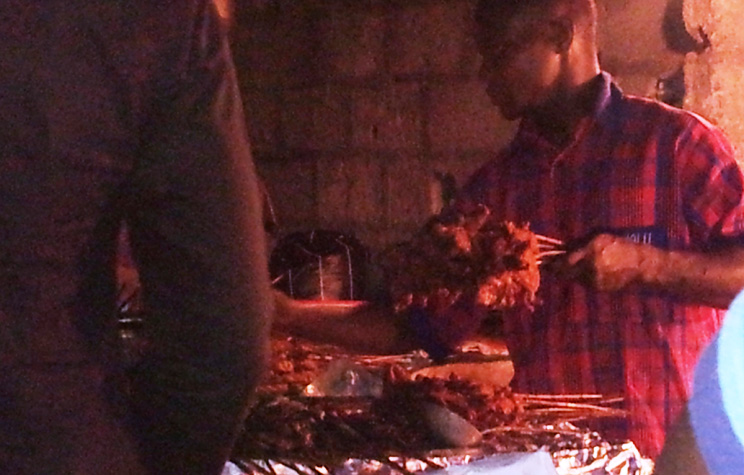When was the last time that lights went off? Couple of years ago? Couple of months? Couple of hours? Your answer depends on where in the world you seat. When sitting in Lagos, lights went off several times on a typical day. At inconvenient times on occasion, like in the middle of taking a shower before sunrise. But I won’t complain: this is just nothing compared to what billions of people go through on a daily basis because of energy poverty.
Why I’m I talking about energy poverty today? Last week, I attended the official launch of The Fuel Freedom Chair for Energy and Social Development at IESE. In his presentation, Founder and Chairman of The Fuel Freedom Foundation Yossie Hollander brought to our attention some important considerations about energy poverty. I’ll summarize some of them here.

Most people in the world don’t have access to all the energy they would need. This is what energy poverty is about. While the problem is broader than electricity, the discussion is focused on electricity. And that’s why the problem of energy poverty is not solved, according to Hollander.
Some areas where energy poverty shows in ways that have a profound impact on people’s lives:
- Transportation: the cost of every product or service includes transportation and fuel costs. These are significantly higher in developing countries.
- Fertilizers: the low agricultural yields and food insecurity in Africa are related to how expensive fertilizers are. Compare the cost of a ton of urea – one of the most important fertilizers: $90 in Europe, $120 in coastal East Kenya, $400 in West Kenya, and $700 in Malawi. The huge differences are due to transportation costs.
- Cookstoves: roughly 40 % of the world population make fire out of wood or biomass to cook and to heat their homes. The pollution this generates causes the death of 4 million people every year – including roughly 50 % of premature deaths among children under 5.
- Electricity: where national grids don’t reach, electricity is produced by diesel or gasoline-based generators. These are expensive, unreliable, and highly polluting.
How can we improve this situation? Hollander had it very clear: promoting alternative sources of power that can be produced locally. Doing so will be more efficient from an economic perspective, and will improve the health and environmental conditions of all those living under energy poverty.
Any thoughts you would like to share?
Btw, congrats to my colleague Ahmad Rahnema, holder of the new Chair!
Related posts
- Africa powering ahead
- Oil: Blessing or curse?
- Access to electricity in Africa
- Blackout excitement: Power problems in Nigeria


Renewable Energy is clearly a key part of the solution but planning network extension and manage it properly according to loads will not be easy. Africa and planning is unfortunately not going together
Hi Enric, this is an important issues, definitely.
Is network extension planning an issue only in Africa? I remember terrible blackouts in Barcelona as well as in California out of demand peaks. I have to admit that these are exceptional but still… maybe they were due to lack of willingness to invest rather than to lack of planning: you know the industry much better than I do!
África M. Ariño you are right. this is very important issues, Definitely i agree with. your write very good for Demand. but planning is very important part all type of project. so planning is Important
Hi Praveen, no doubt planning is very important! And I agree with Enric’s comment above that this is an area for improvement for many African companies.
Good points here.
What about encouraging investment in the field of renewable energy? Africa is full of sun and it would be great to use that free resource. I am not talking about large-scale projects run by governments. It would be great if African governments do even a tax-exception or reduction on solar-generators/equipment, so that normal African citizen could afford to buy them and use them. Thus, it will help African governments to partly reduce blackout time and solve energy issues.
Thank you for raising the attention on this energy important issue.
I fully agree with you, Khaled. Even if large projects are needed, small provate investments can make a huge difference to the citizen in the street. Thank you for raising the issue.
Some local entrepreneurs are undertaking this type of projects. You may want to take a look at this post related to electricity access
Alternative energy is certainly an alternative.
At the same time, one of the world’s greater dam is about to be built in the DRC (INGA III) with absolutely no benefit for both the local population and industry since almost all the electricity is expected to be sold to the RSA.
We believe that the construction of smaller dams coupled with solar energy in the adequate solution, at least for for a country such as DRC.
Hello Marc-Henry,
yes the INGA project is problematic. I touched on it in an earlier post: Powering ahead in Africa. The problem is that such a mega-project needs a large scale which none of the participant countries has. A mix of energy sources is probably the way to go as you suggest.